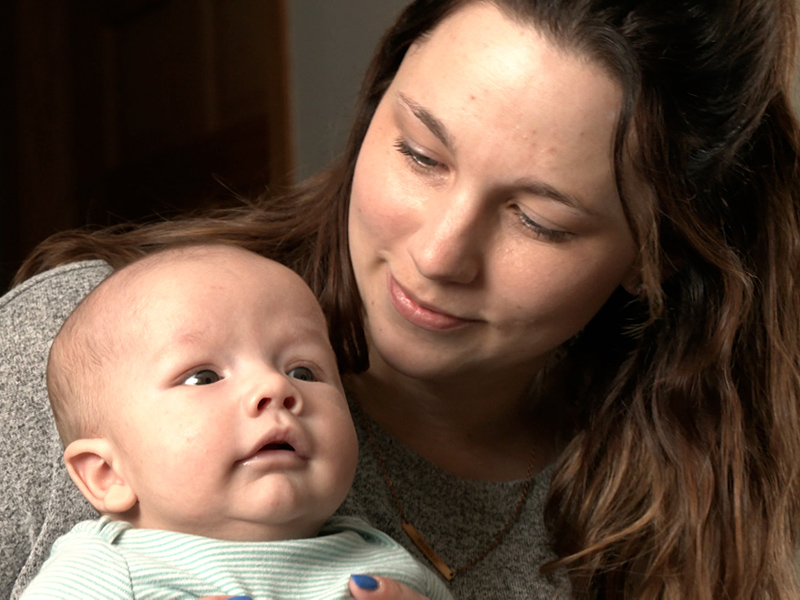Newborn babies are often described as precious or precocious. But there’s another word to describe Theo Loegering of West Fargo, North Dakota: protected.
“He actually has COVID antibodies because I received the Pfizer COVID vaccine when I was pregnant with him,” said his mother, Erika Loegering. “I was able to get two doses in before he was born.”
An informed decision
At 34 weeks pregnant, Loegering, who is a clinical care leader at Sanford Health in Fargo, received her first vaccine shot. She got her second while she was 37 weeks pregnant.
“Pregnant people weren’t allowed to participate in the study, but we just kind of knew that we get the tetanus vaccine when you’re pregnant and the flu vaccine. So they just kind of left it up to me,” Loegering said.
On Jan. 30, her baby boy entered the world a healthy 8 lbs., 4 oz., and not longer afterward he was tested for COVID-19 antibodies.
“Our pediatrician ordered (the antibody test) and she was super excited that he had the antibodies. We don’t know how long they are going to last … but I’m just thankful he’s protected,” said Loegering.
Benefits seem to outweigh risks
While there is still much to be learned about the effects of COVID-19 vaccines on pregnant women and their babies, early results seem to show the vaccine is effective and safe for both parties, said Dr. Jon Dangerfield, OB/GYN at Sanford Health in West Fargo.
“Just about everything that we use in pregnancy, even simple things like antacids, Tums, Rolaids, Tylenol, all these things that are now known to be safe, they had to start at some point. So somebody had to look at those various medications and deem that they were safe,” said Dr. Dangerfield.
In many pregnancies though, the risk of COVID-19 may outweigh any theoretical risks of being vaccinated.
“What we know right now is that the pregnant patient is hospitalized at a higher rate than a non-pregnant, age-equivalent, health-equivalent female,” Dr. Dangerfield said. “They also tend to be more likely to find themselves in the intensive care unit. They’re also more likely to find themselves on a ventilator than that same counterpart that is not pregnant. So when you look at it, it’s all about risks and benefits. I think our job is to relay that information.”
Protected before birth
For Loegering, and for Theo, the risks of COVID-19 were made clear in the weeks before baby was born.
“About two days after I received my second COVID vaccine, my husband tested positive and then a few days after that, my (oldest) son tested positive. I didn’t show any symptoms and then I was tested quite a few times after just due to the exposure and I never tested positive,” said Loegering.
Now that her baby is here and the rest of her family has recovered from their bout with COVID-19, Loegering is excited to introduce the newest family member to his extended family.
“I think we can just follow general CDC guidelines on gathering in small groups without masks or whatnot … but I feel more confident getting together with family members just knowing that myself, and him being so little, are protected.”
Learn more
- Vaccine FAQs: Do COVID-19 vaccines affect pregnancy?
- Pandemic pregnancy: What to consider during COVID-19
…
Posted In Children's, COVID-19, Fargo, Immunizations, Pregnancy, Women's

